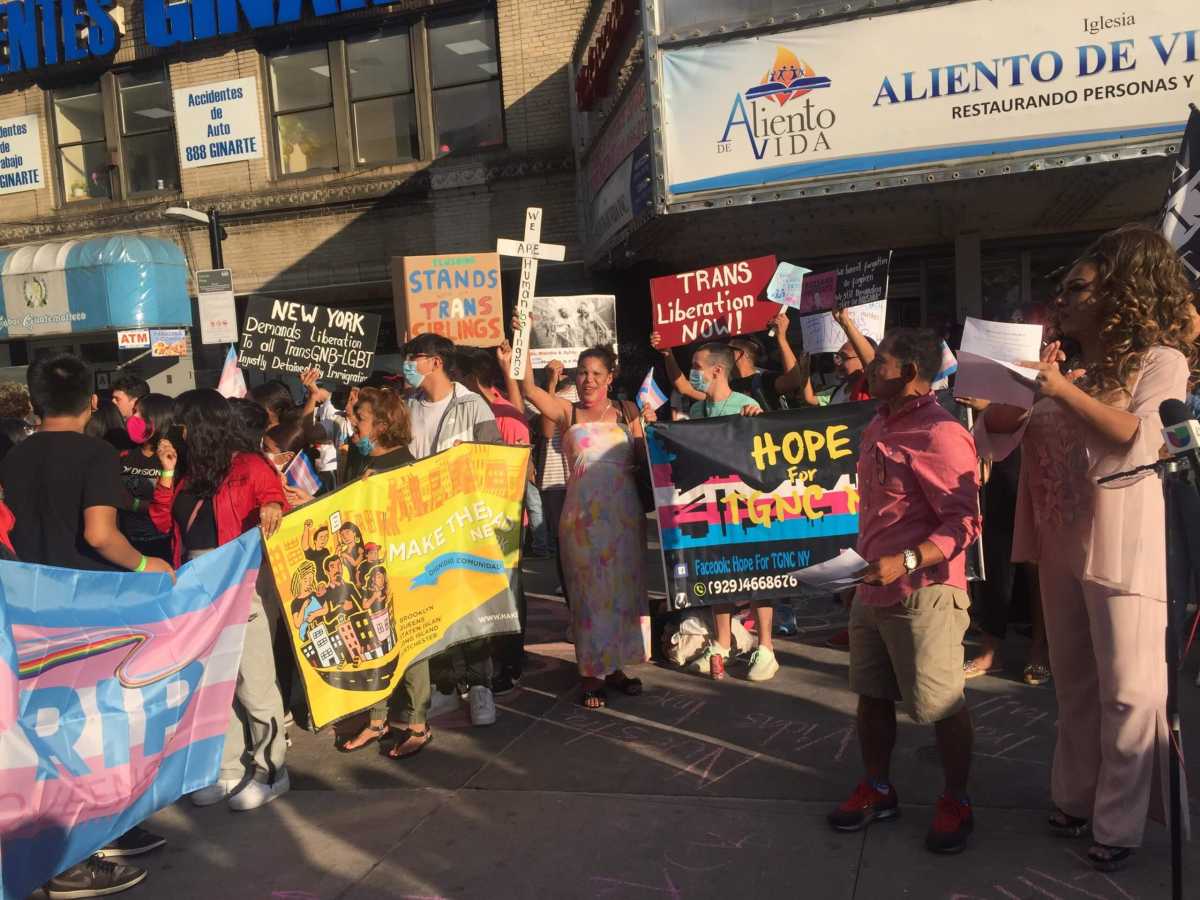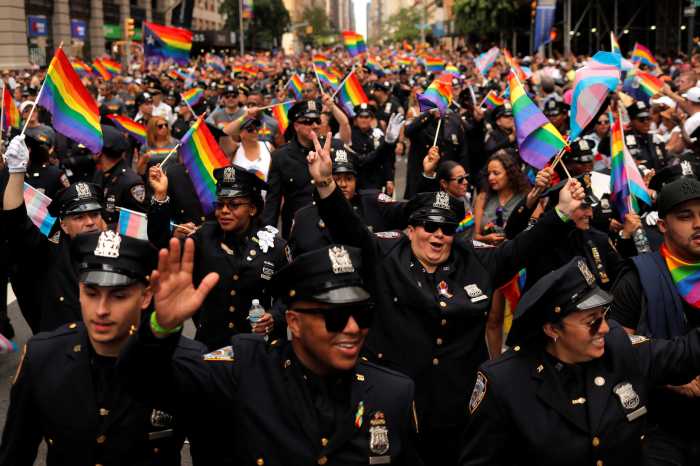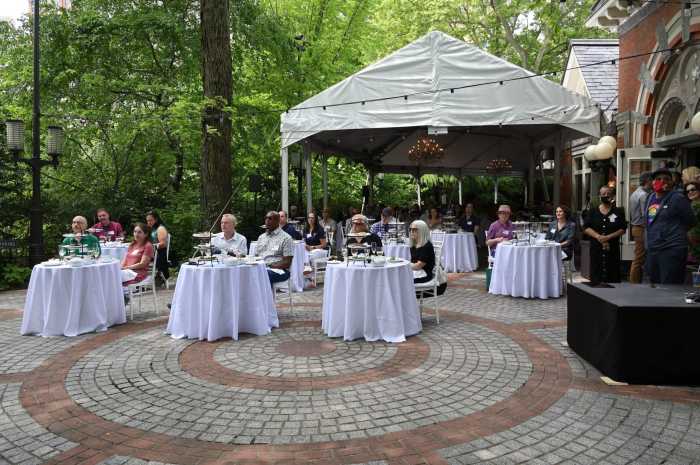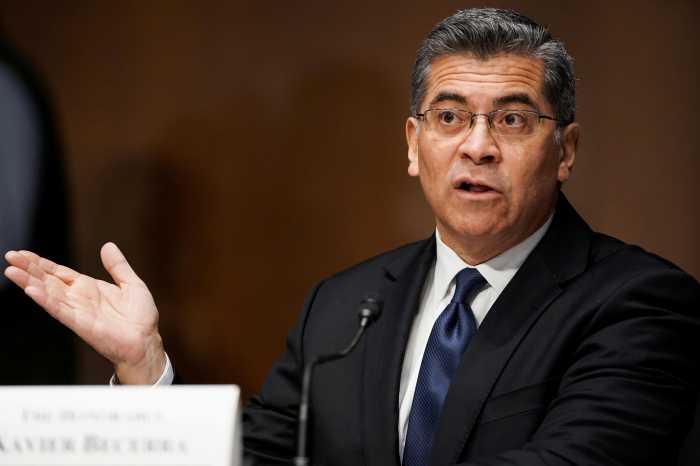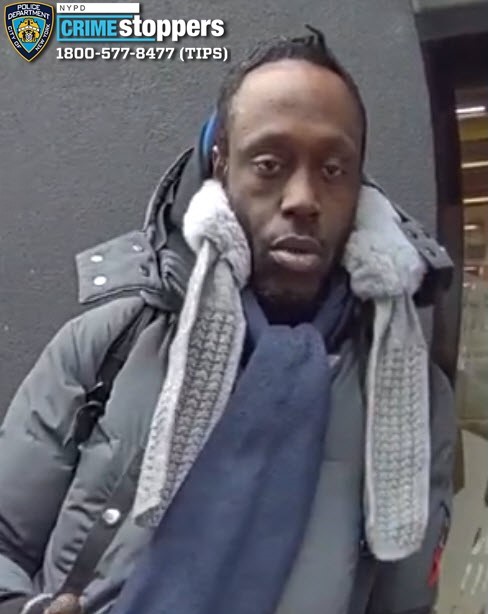More than 100 people flocked to Corona Plaza in Queens on August 2 for the 10th annual Trans Latinx March to bring attention to issues facing Latinx transgender individuals.
Due to the ongoing coronavirus pandemic, this year’s march resembled more of a stationary rally, with demonstrators delivering remarks about a range of issues — including the violence facing transgender individuals, the unique needs of transgender undocumented immigrants, and the problems surrounding the NYPD’s vice squad, which works on human trafficking and sex work-related cases but has been ripped by advocates for running raids in the area and sexually harassing sex workers.
At the event, which also featured entertainment from performers on stage, powder representing the Trans Flag was propelled into the air while folks chanted “Si, Se Puede!” Demonstrators wore T-shirts with the face of Roxsana Hernández, a Honduran transgender woman who died in ICE custody in 2018, as well as the late Latinx Queens activist Lorena Borjas, who spearheaded a bail fund and other community efforts but tragically died last year due to COVID-19.
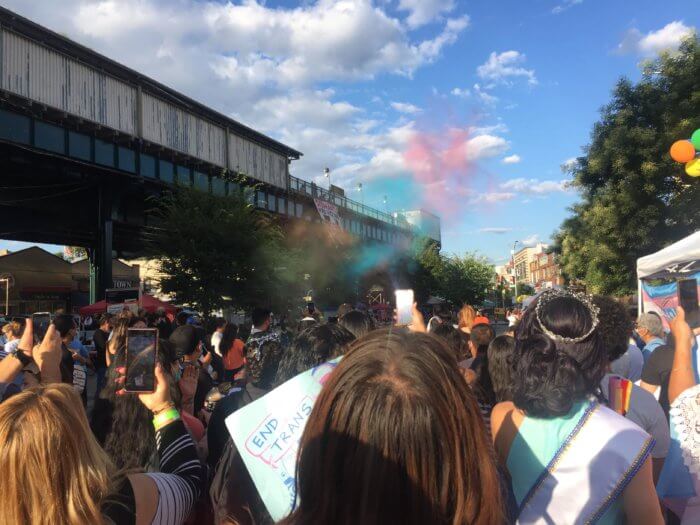
For years, the Trans Latinx March has been rooted in Queens, which boasts a Latinx community of approximately 28 percent and has one of the largest immigrant populations in the city. The neighborhood of Jackson Heights, including surrounding areas such as Corona and Elmhurst, also has large populations of Latinx people.
The Trans Immigrant Project (TRIP), an LGBTQ immigrant advocacy division of Make the Road New York, called for citizenship for undocumented immigrants, advocated for the decriminalization of sex work, and joined calls to disband the NYPD’s vice squad. TRIP organizers Bianey Garcia and Mateo Guerrero emphasized the importance of passing the Stop Violence in the Sex Trades Act (SVSTA), a bill that would fully decriminalize sex work in New York City for all parties involved in the consensual sex trade.
“When sex workers are criminalized, that puts them in danger,” Guerrero said. “They are unable to negotiate better prices, face more violence, and they get harassed not just by other people in the community, but by the police.”
Activists also slammed supporters of the Nordic Model, which only removes penalties for sex workers and not others involved in the sex trade. That model has been slammed by activists who have maintained the position that only full decriminalization would eradicate the stigma sex workers face and reduce risk of trafficking by giving them more control over their work. State Senator Liz Krueger of Manhattan and Assemblymember Pamela Hunter of upstate New York proposed such a bill earlier this year called the “Sex Trade Survivors Justice and Equality Act.”
“If you understand the decriminalization of sex work to be an economic justice legislation, then we cannot support the Nordic model,” Guerrero said, criticizing legislative efforts in the state to advance that kind of approach. “That bill would bring more damage to our communities not just by criminalizing Black and Brown people that purchase sex, but you cannot surveil the clients without surveilling the workers as well. It continues to terrorize sex workers.”
The state most recently repealed a loitering law that was known as a ban on “Walking While Trans” because of how the law was used to target transgender women of color for nonsensical reasons such as what they were wearing or how they were walking.
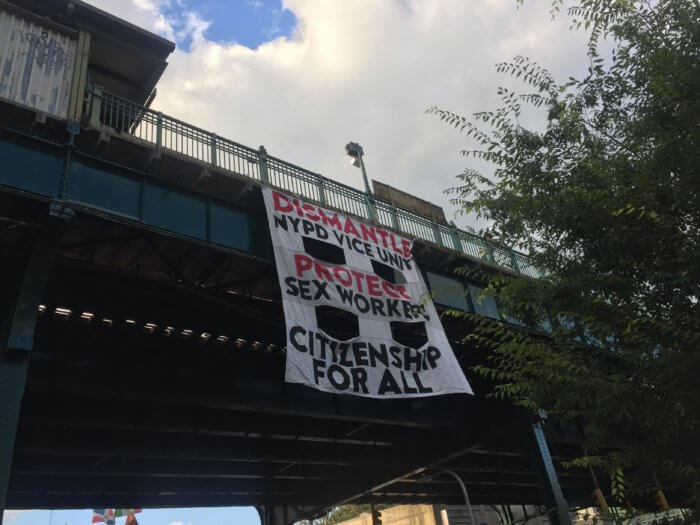
“What we learned over the years is that the institutions like the vice squad, which is still operating and functioning, disproportionately target communities of color, including trans women of color,” said Elisa Crespo, who serves as the executive director of the New Pride Agenda and is a Latina transgender woman. “As long as the vice squad is around and being funded, then it will continue to cause harm and perpetuate violence toward vulnerable communities like ones who are organizing the event.”
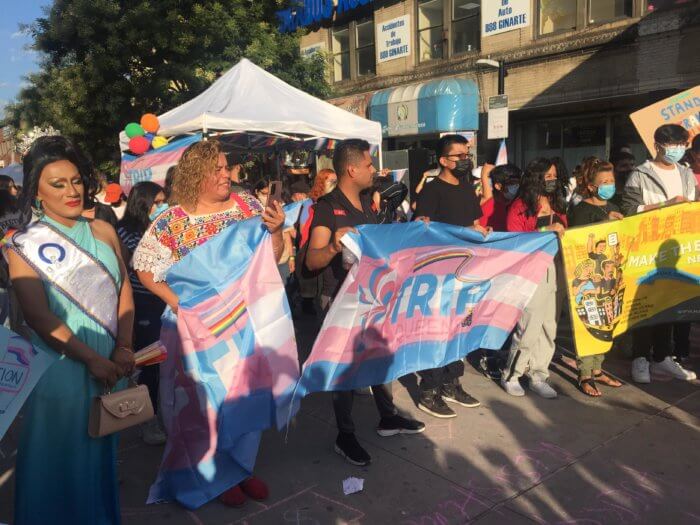
Attendees balanced the activist messages with colorful and unapologetic displays of Pride. Liaam Winslet, an Ecuadorian transgender woman and executive director of Colectivo Intercultural Transgrediendo, an LGBTQ advocacy group, said the annual march sends a message to locals that trans Latinx communities belong in Queens.
“I live here, this is my neighborhood, this is my community,” said Winslet, who is also a sex worker. “It is very important that you respect my rights.”
Individuals also conveyed personal and sobering stories about their own experiences facing adversity. Victoria Galeana Ortiz, a Mexican transgender woman, told Gay City News she was attacked outside of a taco stand in Elmhurst for being transgender. Galeana Ortiz said the attacker asked, “Are you a woman or you a man?” and when she responded, “I’m a transgender woman,” the man said, “I’ll kill you” — and then punched her in the face. Galeana Ortiz called police, but they arrived late on the scene.
When detectives followed up with her about the case, Galeana Ortiz struggled to receive bilingual services.
“Please, I need someone who can speak Spanish,” she told cops. Following the attack, Galeana Ortiz said she is still hesitant to walk outside alone and prefers to take taxis rather than risk anti-trans violence on the streets.
“The police is supposed to be help to the community, but it’s no help,” she said. “A lot of transgender [people] in Queens are dying.”
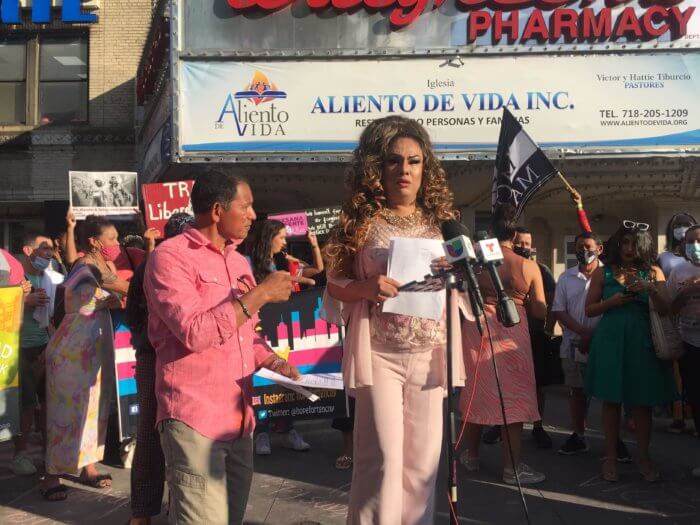
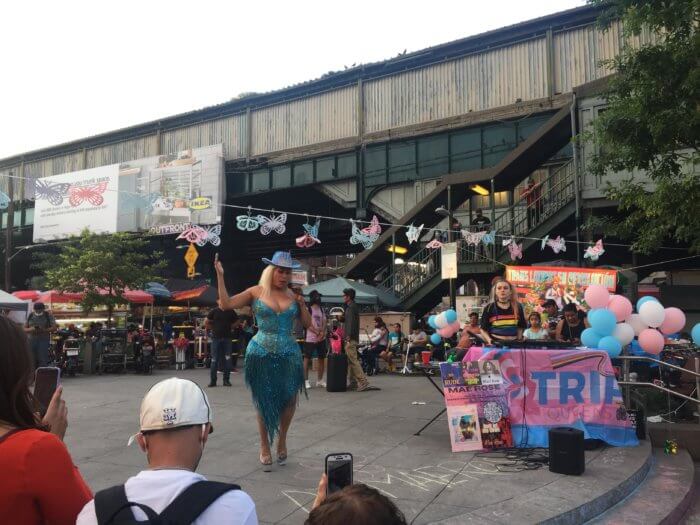
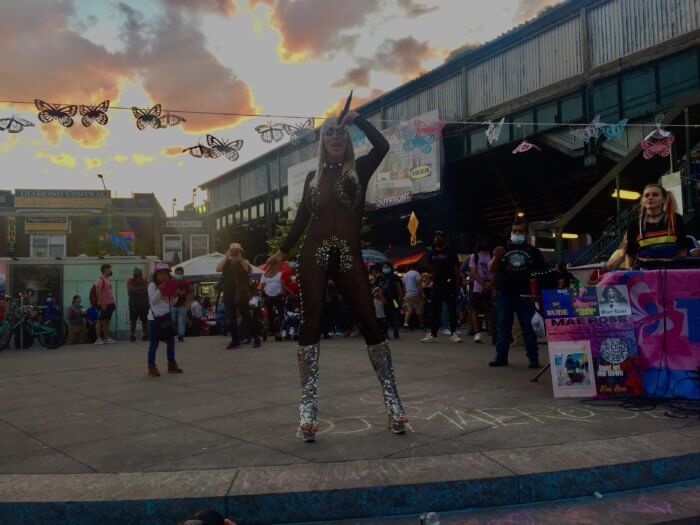
To sign up for the Gay City News email newsletter, visit gaycitynews.com/newsletter.

